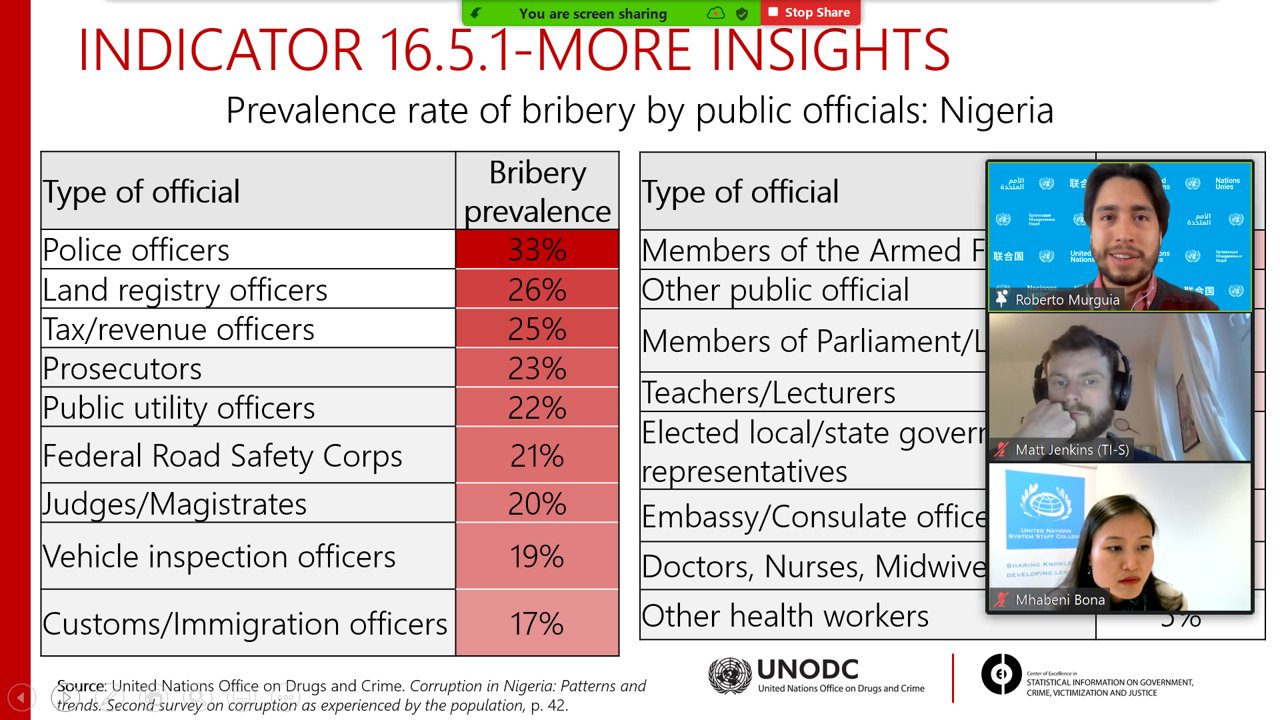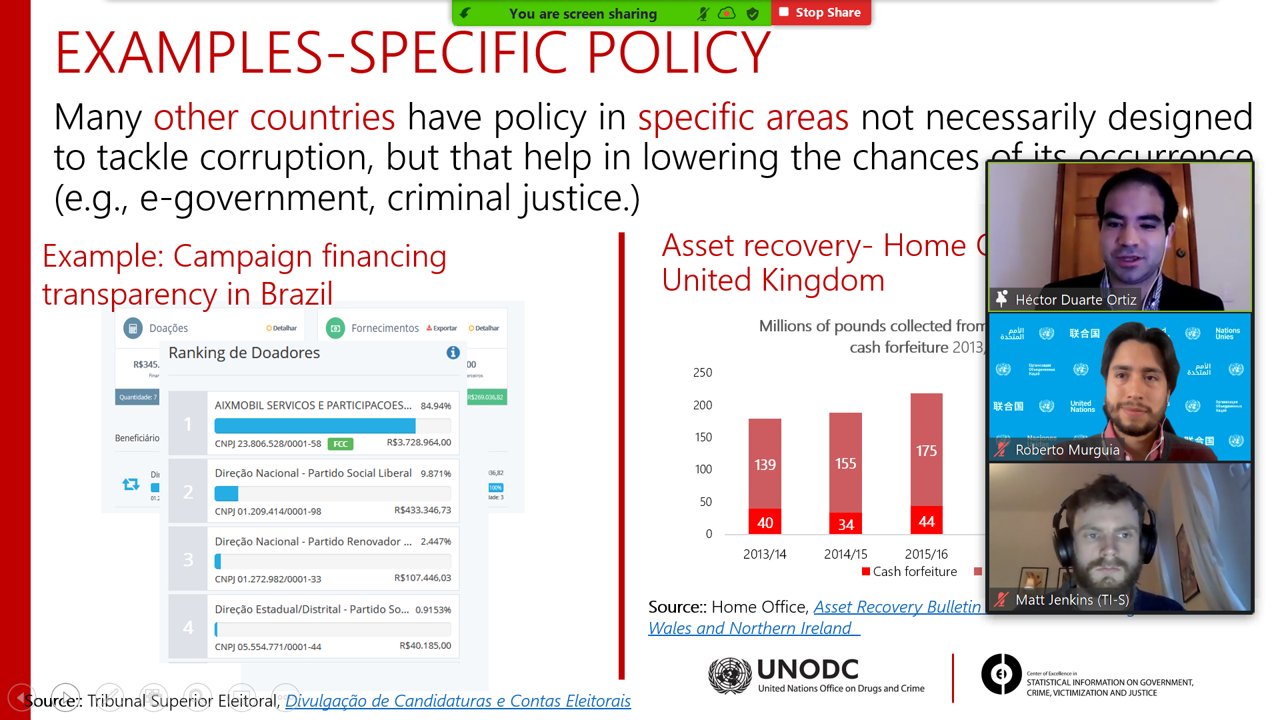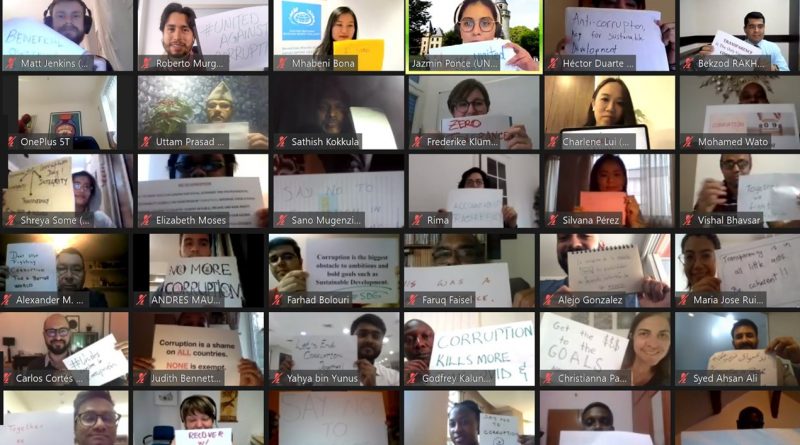Measuring corruption and anti-corruption policies: The UNSSC-UNDP course on anti-corruption
On December 9, marking the International Anti-Corruption Day, the Center of Excellence in Statistical Information on Government, Crime, Victimization and Justice participated in the most recent edition of the “Anti-Corruption in the Context of the 2030 Agenda” course developed by the United Nations System Staff College and the United Nations Development Programme.
The course, which was developed with significant input by the United Nations Office on Drugs and Crime, enhances participants’ knowledge and understanding of anti-corruption and its linkages with sustainable development. It offers UN staff and development partners resources, activities, case studies, conceptual notes, and videos, which highlight the importance of integrating anti-corruption when localizing the 2030 Agenda.
The Center of Excellence jumped in during the 5th week of the course, which focuses on key aspects of measuring corruption and anti-corruption. This section of the course introduces participants to the SDG Global Indicator Framework, and takes stock of progress made in monitoring key anti-corruption targets in SDG 16.
The Center gave a lecture on the importance of measuring and monitoring anti-corruption for sustainable development. Special emphasis was given to the implementation of experience-based measurements such as population and business surveys. The monitoring of comprehensive anti-corruption measures was also a key element of the discussion.
This edition of the course had 151 participants in total, representing 64 countries. The sector breakdown was UN and International Organizations (28%); Private sector (24%); Government (24%); Civil Society (17%); Academia (7%). The gender distribution was 80 female attendees to 71 male.





